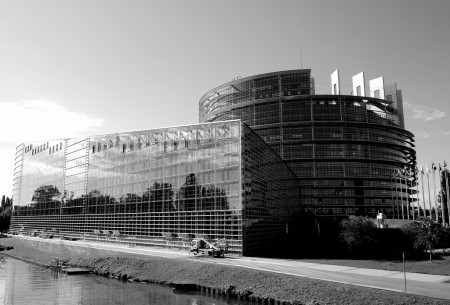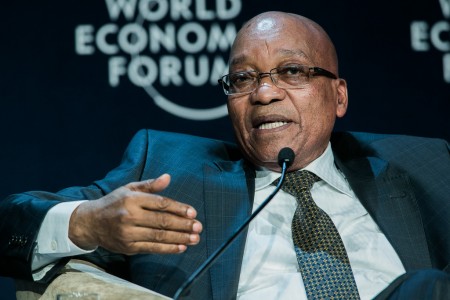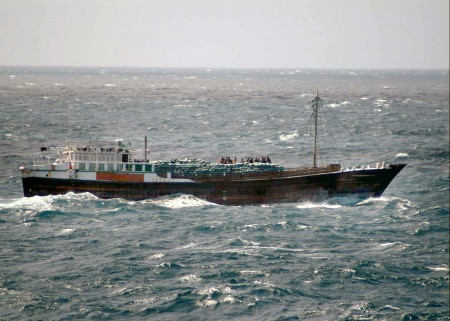
There is a taboo about discussing a member state leaving the EU. Quitting the EU goes against the founding idea that the EU helps “lay the foundations of an ever closer union among the people of Europe.” But like it or not, the direction of British politics means the EU might soon find it can no longer refuse to think about a British exit. More importantly, it needs to start thinking about what it could mean for the EU. So far almost all discussion about the British leaving has focused on what this could mean for the UK. The only time the EU is given any thought is when the idea of a renegotiated UK-EU relationship is raised, with warnings Britain’s “pick and mix” attitude could potentially undermine the EU. So if a renegotiated relationship is unacceptable, would letting Britain go be any better?
A “Brexit” would present the EU with three sets of challenges. First, the short-term problem of negotiating a British exit and withdrawal. Despite the inclusion of a withdrawal clause in the EU treaties, it is largely unknown territory to negotiate the loss of any state, especially one that is 12.5% of the EU’s population and 15% of its economic area. Concluding a withdrawal agreement requires the agreement of the UK, the European Council and the European Parliament, the latter getting to vote on whether the deal is acceptable for the EU. This doesn’t mean the EU has a veto over Britain withdrawing, only over what conditions it will grant for an agreement and, crucially, what type of post-withdrawal relationship will follow.
Second, at the same time as it’s talking to the UK, the EU would have to start talking amongst itself about how to change its institutions, budgets and votes to compensate for the disappearance of one of its largest members. Such changes, rarely agreed with ease, could shift the balance of power within the EU, changing its nature and direction. States such as Sweden and the Netherlands fear the loss of a large economically liberal state would make the EU more inward looking, tending more towards protectionism. Governments of large states worry the disappearance of a large state would mean smaller states gain an upper hand. The Franco-German axis could be unsettled, leaving a more dominant Germany. For northern and western European states, the loss of the UK could shift the EU southwards and eastwards, unsettling northern and western states and bringing to an end the possibility of enlargement to states such as Turkey. On the other hand, rid of its most awkward member, the EU could more easily move forward towards “ever closer union”. With the disappearance of the UK’s veto, the Euro could be more easily stabilised. The Eurozone could become the undisputed core of the EU, easing the way for political and economic union. Europe’s social model could be freed of British attempts to dilute it. European foreign, security and defence cooperation, although weakened by the loss of the UK, would also be freed of the UK’s objections, allowing it to develop. Of course, this all assumes the UK is the main obstacle to progress. The problems with the Eurozone have shown how, even with the UK largely outside the negotiations, the EU has still struggled to find solidarity and leadership.
Finally, the EU would have to manage what the exit means for wider Europe and the perception of the EU by the rest of the world. Here the agreed UK-EU post-withdrawal will be crucial. It could lead to changes to the European Free Trade Association (EFTA) and the European Economic Area (EEA). Britain could try, but fail, to create some “Single Market Club”. It might even fall out of the EEA. If the UK thrives outside the EU, and the Euro continued to struggle, then the UK’s new status could lead other member states to question their membership, in turn unravelling the EU and undermining the current model of European integration. Equally, should the UK suffer and the EU and Eurozone stabilise then the UK could end up isolated, with the rest of the world dealing with a more united Europe where the UK’s position is a junior to both the USA and the EU. However, the USA and other powers may see the UK’s withdrawal as another sign of European division and decline. European defence cooperation could become even more difficult, whether in NATO or through the EU. The EU would also have to face a UK which, while a reduced power, would remain a European power that would seek to influence developments in the EU. Given the EU has struggled to present a united front to states such as the USA or Israel, what chance is there it could manage a united approach to the UK?
This is all, of course, speculation. Detailed analysis of the “Brexit’s” implications for the EU is almost non-existent. Meanwhile the possibility of it happening continues to grow, the more likely British demands for a renegotiation become. Failure to face the implications and hoping the issue will go away, merely hands control of the agenda to those – both in the UK and elsewhere in the EU – who want to see Britain leave.
Tim L. Oliver is a Fritz Thyssen TAPIR Fellow. His SWP Research Paper “Europe without Britain” was recently published. Until May 2013, he was a member of the SWP’s International Security Division. He is now at the Center for Transatlantic Studies, Paul H. Nitze School of Advanced International Studies, Johns Hopkins University, Washington D.C.
This article was originally published on the SWP blog Point of View.
For additional reading on this topic please see:
Leaving the EU
The Renegotiation Delusion? Nine Questions about Britain’s EU Future
Großbritanniens Zukunft in Europa
For more information on issues and events that shape our world please visit the ISN’s Weekly Dossiers and Security Watch.





